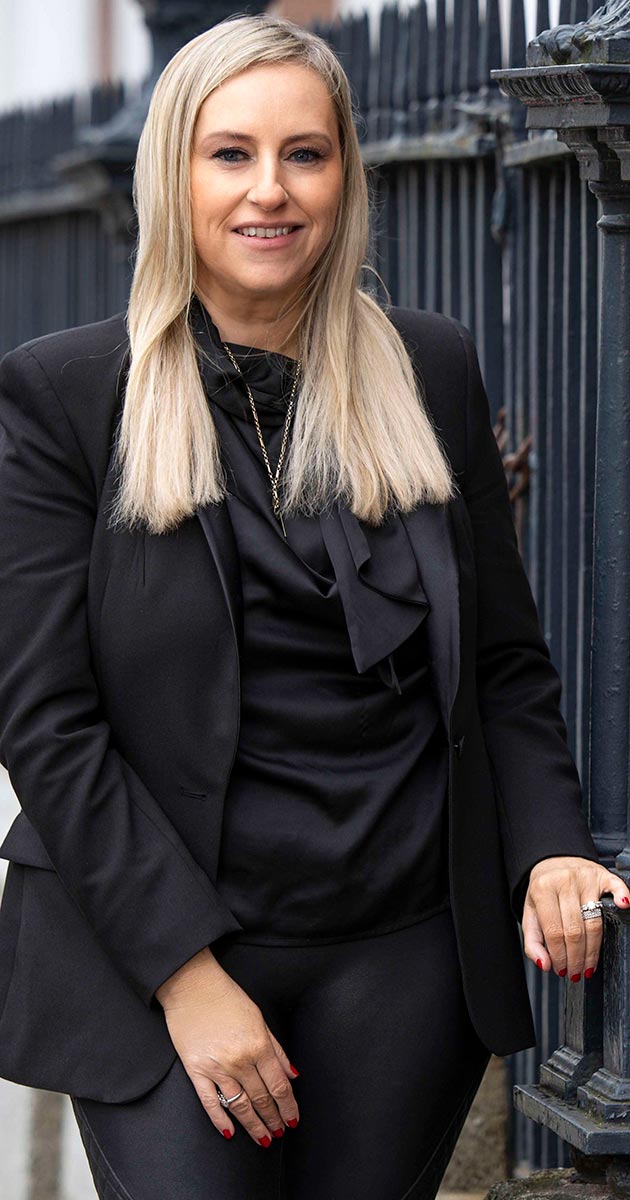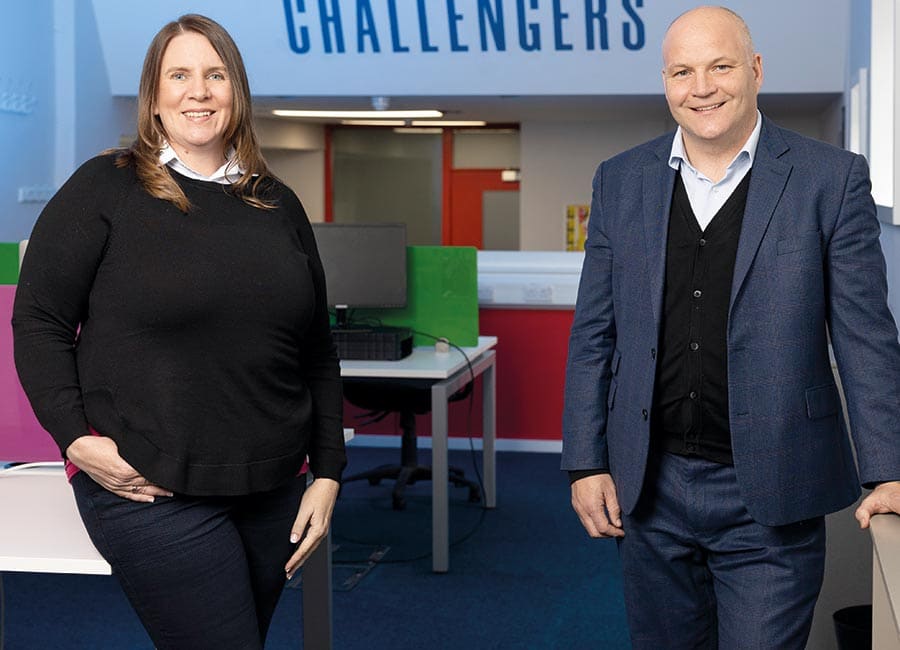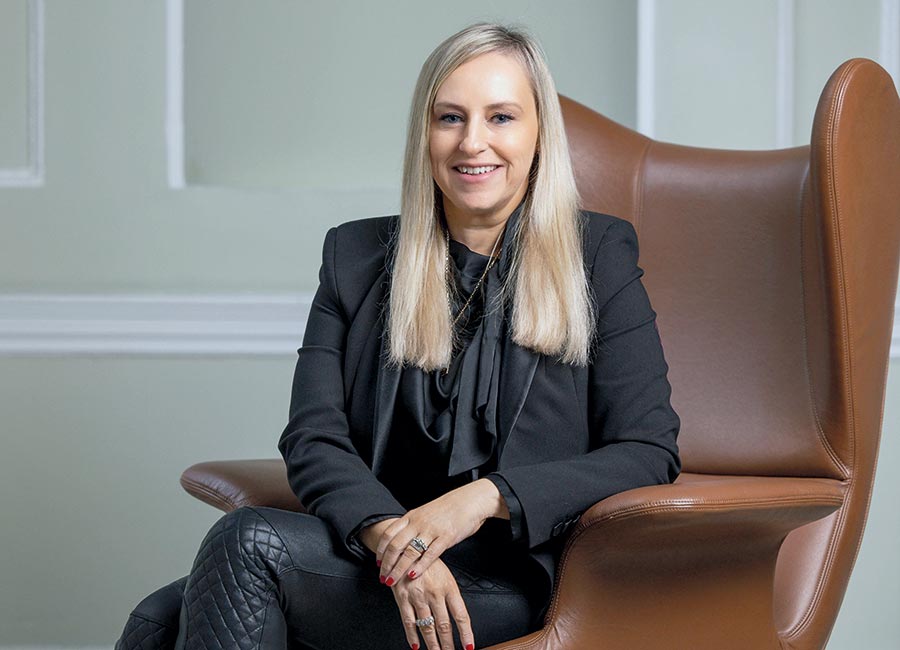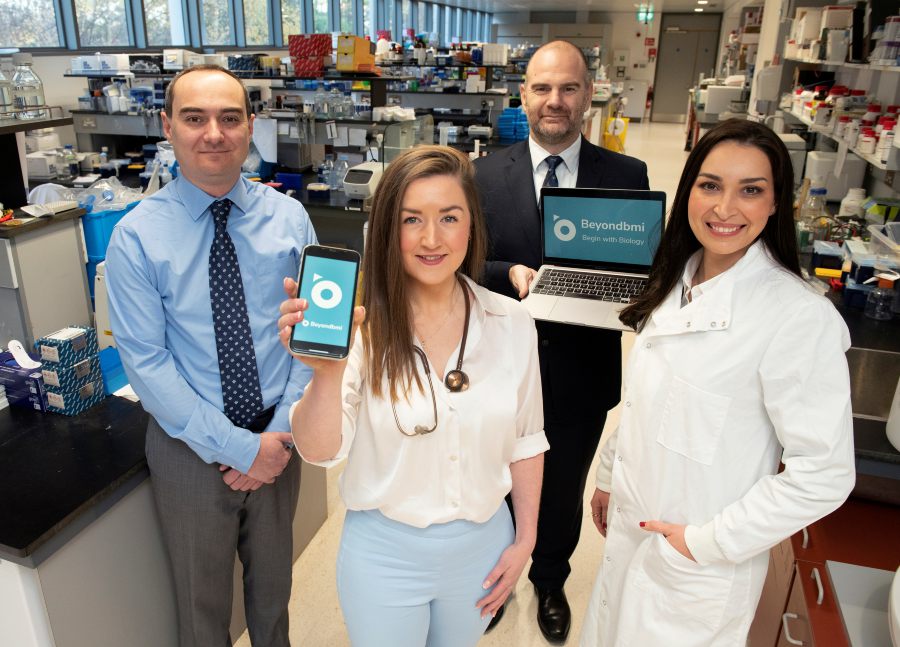Women are at the forefront of public relations in Ireland. Siobhan O’Connell talks to some of the industry’s female leaders about their careers and ambitions
Public relations has always been an equal opportunities employer. More women have senior leadership roles than in any other professional services sector, and PR also attracts gutsy female entrepreneurs who develop consultancies that endure for decades.
The sector provides training through the Public Relations Institute of Ireland, and there are multiple PR-related courses too. Sharon Murphy, managing director of Wilson Hartnell, a pre-eminent corporate PR firm since the 1970s, is a UCD social sciences graduate, and her route to the top job commenced with a six-week placement.
Murphy recalls doing some work experience in the Focus Ireland press office during her time in college, which exposed her to working with the media. She decided not to pursue a career as a social worker and landed a job with McConnell’s, a large advertising agency.
“I was walking down Leeson Park one day and saw the Wilson Hartnell office building,” says Murphy. “I walked into reception, wearing a tracksuit bottom, and asked if there were any jobs going. I was about 20 at that stage. There was a vacancy for an account director, I applied for that and was taken on for a six-week contract. When the time was up, I just hung around and never left.
“I was very lucky. In Wilson Hartnell, the conditions are there for you to develop at your own pace. Each day I would focus on what I had to do in that day. It's all about being clear on the objectives you set for clients and for the company and achieving them. Then the good stuff will follow through.”
Murphy was appointed managing director in 2018 after two years in the deputy MD role. She was in charge of steering Wilson Hartnell through the two years of lockdowns and working from home, and says she is looking forward to going back in the office, albeit with a permanent hybrid working model.
“I would absolutely hate to be five days at home at my kitchen table. I love meeting people, whether they're colleagues, clients, media, and partners that we work with across the business. There's a reason why the social gatherings on Zoom petered out during the pandemic. It was exciting at the start when we were all making sourdough bread, but we’re bored of it now and done with it.
“The world of work and people is changing, in that there's definitely give and take required. If you want to retain and attract people, you have to have an appreciation for work/life balance. I think that's a healthy thing for people and for business.”
+++++++++++

Anne-Marie Curran is the managing director of Drury, which operates in the same market segment as Wilson Hartnell. She joined the consultancy in 2004 and was appointed to the lead role in 2010, at the age of 32. Like Sharon Murphy, Curran studied at UCD, where her degree was French and German.
“The theme of European integration was a massive thing in the 1990s, which is why I took on two languages at college,” Curran recalls. “To be honest, I wouldn’t recommend it - one language at third level is sufficient. Language competence didn’t translate into the amazing jobs I was expecting, and luckily my head was turned at a college careers event where Roddy Guiney of Wilson Hartnell was the speaker.
“I am from Meath and many years ago I was told by an MD of a PR company that country girls don’t get on in this game. I was a bit daunted by that, but I did a Master’s in Public Relations in DIT, and secured a role with Fleishman before moving onto Drury, where I specialised in corporate PR.”
Drury was an indigenous PR venture that, like Wilson Hartnell, was acquired by a multinational peer, Omnicom. In May 2020, Curran and her colleagues executed a management buyout (MBO) and brought the firm back into Irish ownership.
Curran explains: “We had approached Omnicom about an MBO a couple of years previously, but it wasn’t an option at the time. The mood changed with the pandemic, and the possibility opened up and we just grabbed it. Since the MBO, not much has changed in how the business is run, though I suppose we feel a bit more inclined to take risk."
The MBO timing was good. According to Curran, the PR sector was busy through 2021, despite the absence of live events. “Many clients wanted to pivot very quickly. Changing up your message in the context of making it relevant to the circumstances suits the medium of PR. That has really worked well for many agencies, including ourselves.”
In Curran’s view, the biggest change in PR since she started her career is that mass media doesn’t work anymore. “The necessity now is to deliver messaging in the context of the audience that you're facing, so the need is to be very niche and targeted. However, the principles of communications, or the tenets of a good strategic comms plan, have not changed.”
++++++++++++++++++
Siobhan Molloy, managing director of Káno Communications, undertook an MBO of the consultancy from Weber Shandwick in May 2021. She started her PR career in Carr Communications, before moving to FCC as account director under agency founders Eileen Gleeson and Mary McCarthy, eventually ending up as managing director of FCC Weber Shandwick.
Molloy studied visual media in college and took on an intern role in Carr. In those pre-email days, she would pack envelopes with press releases, which were couriered to newsdesks. By night, Molloy was packing shelves in Dunnes Stores.
“This was the late 1980s and all my friends were emigrating,” she recalls. “I was a northsider in a school where only one in nine students progressed to third level, and I had amazing parents who pushed us all to go to college. Dunnes asked me to join their managerial training programme, but I found PR really interesting.”
After nine years with Carr, Molloy moved to FCC. Though female representation at director level is commonplace now, that wasn’t the case in 1989, when Gleeson and McCarthy established their agency.
“I learnt from two amazing women who set up a PR business when almost all PR firms were run by men. When Eileen left, Mary and I advertised for someone to manage the business so we could get on with working with our clients. All the applicants were men, so we split the role as joint managing directors, reporting into London.”
FCC was acquired by UK peer Shandwick, which in turn merged with Weber. The Irish agency traded as FCC Weber Shandwick, benefiting from the parent’s account-management and accounting processes.
“The head office wants every market to grow, so I suppose that was a bit of pressure,” says Molloy. “IPG, a listed company and the ultimate owner, was always at the forefront of changes in communication platforms and how best to exploit them. It was also way ahead in terms of thought leadership, and it was fantastic to have access to that. The other big advantage is access to global clients who require representation in Ireland.”
The MBO conversation was triggered by an office lease expiry. “When you are on your own, you have the freedom to do things quickly, and business now is about speed. I saw the opportunity to continue as a partner to IPG in Ireland and also have autonomy.”
Káno has made a number of hires in the past year and Molloy says she considers applicants who don’t have formal PR education. “People can learn on the job and from the people around them. To succeed in our business, you have to be a natural communicator who can gather your ideas and get your point across in a persuasive manner, in a way that people will understand and connect with.
“If you are not interested in the news, you shouldn’t be in the PR business. One of the questions I ask every job applicant is ‘what is your daily news consumption?’”
++++++++++++++++++

As PR consultancies become more sophisticated with their services, the sector attracts professional managers like Jenny Paetzold, who was recently appointed chief operating officer at Teneo Ireland. She joined from creative agency McCann Dublin, where she was managing partner.
Paetzwold’s parents are Irish, and she was born in South Africa. Initially she was a software programmer before gaining ad agency experience in Johannesburg. She moved back to Ireland in 2008 and undertook an MBA with Henley Business School during her time in McCann.
She explains that globally Teneo has been putting COOs in place in many of its offices. “That's because the company has been growing at a remarkable rate,” she adds. “With that scaling comes an imperative to ensure that we are aligning our people, capabilities and structures to give us the best competitive advantage, and to do the best work for our clients.”
Another responsibility is to raise Teneo’s profile in the Irish market. “Looking at our employer brand is a big piece of what I'll be doing too. We have to make sure that we're retaining and attracting senior talent into the business.”
Paetzwold notes that advertising has become more nuanced over the years. With the advent of digital and data segmentation to target consumers, advertisers can deliver specific messages to a bespoke audience.
“PR agencies traditionally have always done that very well,” she says. “I don't think PR is separate from advertising, but with strategic communications you need to make sure that everything is integrated. Clients are increasingly looking for a one-agency approach, with a convergence of digital, comms and PR. The next logical step in this convergence will be for an organisation to have public relations and advertising as part of their offering. We see so many crossovers now, especially with influencer marketing.”











